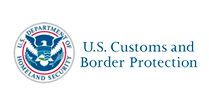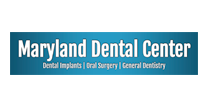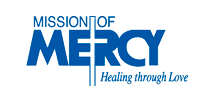Health Care Access
Access to Public Benefits in DC
Before enrolling in any local or federal public benefits programs, individuals who are uncertain about the impact enrollment will have on their ability to become Legal Permanent Residents (LPR/Green Card holders) or Naturalized Citizens should consult with an immigration attorney before proceeding.
Links to Sections
Government Programs
Two types of government-funded public benefits programs: D.C.-specific programs and federal programs. Few immigrants qualify for federal public benefits, though there are exceptions which are outlined below. All immigrants are eligible for emergency Medicaid.
DC Specific Programs

Immigrant Children's Program
D.C. funded Medicaid managed care provider (MCO) for children who are only ineligible for Medicaid as a result of their immigration status
Healthcare Alliance
MCO with no citizenship eligibility requirement. Adult immigrant residents of D.C. who do not qualify for Medicaid receive health coverage through the Alliance. Alliance does not include mental health supports, substance abuse counseling, and has limited medical providers. Requires in-person interview)
Federal Programs
This PDF from the National Immigration Law Center explains which immigrants are eligible for which federal programs. It divides immigrants in to three categories: “qualified” immigrants who entered the US before 8/22/1996, “qualified” immigrants who entered the US on or after 8/22/1996, and “not-qualified” immigrants.
- Supplemental Social Security income (SSI)
- Supplemental Nutrition Assistance Program (SNAP)
- Temporary Assistance for Needy Families (TANF)
- Emergency Medicaid (ALL ARE ELIGIBLE, includes labor and delivery, testing and treatment for symptoms of communicable diseases, immunizations, short-term emergency disaster relief
- Full-Scope Medicaid
- Children’s Health Insurance Program (CHIP)
- HUD Public Housing and Section 8 Programs
- Title XX Block Grants
- Social Security
- Other Federal Public Benefits Subject to Welfare Law’s Restrictions
“Qualified” Immigrants (comprehensive list):
-
- Lawful permanent residents (LPR/”green card” holders)
- Asylees
- Refugees
- Persons granted withholding of deportation/removal
- Persons paroled in to U.S. for at least 1 year
- Conditional entrants
- Cuban or Hatian entrants
- Certain abused immigrants, their children, and/or their parents (U-visas)
- Certain victims of trafficking (T-visas)
“Not-Qualified” Immigrants:
- Undocumented
- Temporary Protected Status (TPS)
- Deferred Action for Childhood Arrivals (DACA)
- All other immigrants/all those who do not fall in to one of the “qualified” immigrant groups

Questions to Determine Immigration Status

Entry into the U.S.
Did you come to the U.S. by illegally crossing the border at some place other than a U.S. checkpoint?
Visa
- Did you come to the U.S. on some type of visa?
- What kind of visa (i.e. student, tourist, employment)
- Is your visa still current or is it expired?
- Are you getting a U-visa because you were a crime victim? Is someone assisting you?
Legal Permanent Resident/Greencard
- Are you a legal permanent resident? Do you have a greencard ?
- If not, have you or any of your relatives ever filed family visa petitions for you to get a greencard?
- If so, when were they filed?
- Who filed these petitions? (I.e. parent? spouse?)
Work Permit
(A work permit will say “Employment Authorization” on it.) There are many different types of status that let you apply for a work permit. If you can make a legible copy of the card, the “(c)-code” information on it can pinpoint the type of status or application it is linked to. WDAIP can help with that.
- Were you given a work permit?
- Do you know why it was granted?
Marriage
Marriage per se does not confer any lawful immigration status on a noncitizen spouse. Where the noncitizen marries a US citizen or LPR, this entitles the noncitizen to begin the process of applying for lawful status based upon a valid marriage.
- Are you married to a U.S. citizen or lawful permanent resident?
Refugee or Asylee
- Did you come to the U.S. after having been given refugee status/visa? (Refugee visas are granted outside the US and people then enter legally; a refugee visa is often stamped or noted on an “I-94” entry document.)
- Have you ever applied for asylum since you arrived in the U.S.? (Political asylum is granted to people who are inside the US when they apply.)
- Was your application granted?
- If so, when
- If so, are you still in asylee or refugee status or did you apply for your greencard? (Refugees must, and asylees can apply for a greencard, after one year.)
- If not granted, is your application still pending?
- If your application was denied, have you had a hearing with an immigration judge?
DACA
(Deferred Action for Childhood Arrivals)
DACA is a type of non-statutory, temporary administrative status created in 2012, after the Dream Act and immigration reform law failed. It gives temporary status and work authorization to some undocumented people who entered the US before age 16, before 6-15-2007, and who were born on or after 6-15-1981. DACA does not lead to LPR status or give any other immigration status. Felony and some misdemeanor convictions are a bar.
- Did you apply for the program for Dreamers/people who came before they were 16?
- Did you apply for work authorization?
- How old were you when you came to the US? When did you come?
COFA
(Compact of Free Association) Resident
Three Pacific island nations have Compacts of Free Association with the United States. COFA citizens may come into, reside in, and work indefinitely in the US, but like permanent residents, they can be deported or excluded for crimes. They are not US nationals. Origin in a COFA country is usually the tip- off to this status, although such a person could have become an LPR or US citizen through normal channels. These countries are (weblink)
Temporary Protected Status (TPS)
TPS is a type of temporary status well short of asylum. Eligibility is established by designation by the Secretary of Homeland Security and must be renewed, usually every 18 months. TPS allows work authorization but does not lead to LPR or any other immigration status. The group is designated by country and date of arrival. Countries with groups currently designated for TPS are listed here.
ICE Order of Supervision
(Final Order of Removal/Deportation)
People with final orders of removal (deportation) sometimes cannot be deported because the country of origin will not cooperate or because a travel document cannot be obtained. In such cases ICE will release the person with an Order of Supervision. They usually have to report to ICE, and can apply for work authorization. Some people stay in this status for years or permanently.
- Did you ever see the immigration judge? W ere you ordered deported?
- Were you told you can’t be deported because your country won’t take you back?
- Do you have to report to ICE (Immigration and Customs Enforcement)?
Assistance Forms

DC Department of Human Services
To apply or recertify for one or more of the assistance programs, must fill out combined application and either mail or submit application to service center. Interviews required for all programs except Medicaid.
Possible Required Documentation
- Income
- Recent paystubs; statement showing retirement income, disability income, or Workers Compensation; pension statement; etc.
- Assets
- Recent bank and checking account statements, etc.
- DC Residency
- DC driver’s license, lease, rent receipt, written statement from your landlord, utility or telephone bill, etc.
- Social Security Number
- Social Security card; tax or payroll documents with your SSN on it; DC driver’s license with your SSN on it; etc. (Not required for Food Stamp-only applicants.)
- Medical Exam Report / Disability
- Recent medical report (or Form 856) and any supporting materials from your doctor.
- Immigration Information
- Employment Authorization card, I-94, visa, passport, or other documents from the INS.
- Rent / Mortgage (SNAP Only)
- Lease, rent receipt, cancelled check, mortgage statement, etc.
- Utility Bills (SNAP Only)
- Recent bills for electric, gas, fuel, phone, water, telephone, etc. (if you pay these separately from your rent).
- Relationship (TANF Only)
- Birth certificate (full copy) for your child(ren) or official records from a school, court, hospital, etc.
- “Living With” (TANF Only)
- Statements from two non-relatives or school records.
- Note: Also bring your Medicare card or other health insurance card, if you have one.
IN DC, TRANSLATION VIA LANGUAGE LINE MUST BE PROVIDED FOR INTERVEW. PLEASE REFER TO LANGUAGE ACCESS RIGHTS SECTION OF HANDBOOK FOR ADDITIONAL DETAILS.
Economic Service Centers
Taylor Street
1207 Taylor St NW
Phone: 202-576-8000
Fax: 202-576-8740
Hours: 7:30 am – 4:45 pm on Monday, Tuesday, Thursday & Friday
7:30 am – 8:00 pm
on Wednesday
H Street
609 H Street NE
Phone: 202-698-4350
Fax: 202-724-8964
Hours: 7:30 am – 4:45 pm on Monday, Tuesday, Thursday & Friday:
7:30 am – 8:00 pm
on Wednesday
Fort Davis
3851 Alabama Ave SE
Phone: 202-645-4500
Fax: 202-645-6205
Hours: 7:30 am – 4:00 & Friday; 7:30 am – 8:00 pm on Wednesday
Anacostia
2100 MLK Jr Ave SE
Phone: 202-645-4614
Fax: 202-727-3527
Hours: 7:30 am – 4:45 pm on Monday, Tuesday, Thursday & Friday
7:30 am – 8:00 pm on Wednesday
Congress Heights
4001 S Capitol St SW
Phone: 202-645-4546
Fax: 202-654-4524
Hours: 7:30 am – 4:45 pm on Monday, Tuesday, Thursday and Friday; 7:30 am – 8:00 pm on Wednesday
Applying for Medicaid
DC Medicaid provides health care coverage to adults, children and families who have a low income or a disability. To be eligible, you must be a resident of D.C. and meet certain eligibility requirements. Apply online at DCHealthLink.com or call 1-855-532-5465.
Dental
Reduced-cost dental care in DC and Maryland.

Mary's Center Dental Clinic
912 Georgia Ave, NW
Washington, DC 20011
202.483.8196.
The clinic treats adults and children. A sliding fee schedule based on income is used.

Washington Hospital Center
110 Irving Street Northwest, Washington, DC 20009
202-877-7332
Surgery only.

Howard University College of Dentistry
600 W St NW, Washington, DC 20001
202-865-6100

University of Maryland Dental School
410-706-7101
650 W Baltimore St Baltimore, MD 21201
Filling, crown, bridges, implant restoration, dentures, root canal, treatment of gum disease.

Spanish Catholic Center
202-728-7309
Preventive, diagnostic, emergencies and restorative services.

Maryland Dental Center
Low-cost services. Provides different specials/offers.

Dental Mission of Mercy
Free Dental Care. Maryland

Kind & Gentle Dental Care
Low-cost dental care for adults and children.
10101 Georgia Avenue
Silver Spring, Maryland 20901
301.754.1010


